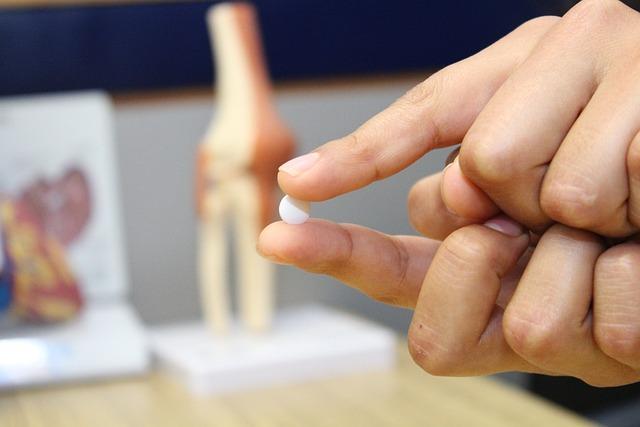It’s an uncomfortable but important topic: discussing your sexual activity with your doctor. Understanding how to navigate these conversations can be crucial for both your health and your relationship with your healthcare provider. In this article, we’ll explore why it’s essential to be open and honest with your doctor about your sexual habits, and provide tips on how to broach the subject in a respectful and effective manner.
– How to Discuss Sexual Health with Your Doctor
Discussing sexual health with your doctor can sometimes feel uncomfortable or embarrassing, but it is an essential part of your overall well-being. Here are some tips to help make the conversation easier and more productive:
- Be honest and open about your concerns and experiences.
- Ask questions and seek clarification if you don’t understand something.
- Remember that your doctor is there to help and support you, so don’t be afraid to express your needs and preferences.
It’s important to communicate any changes in your sexual health, such as new symptoms or concerns, so your doctor can provide the best possible care. Additionally, make sure to discuss any medications you are taking and their potential impact on your sexual health. By having open and honest conversations with your doctor, you can ensure that you are receiving the proper care and support for your sexual health needs.

– The Importance of Regular STI Testing
Regular STI testing is crucial for maintaining overall sexual health and well-being. Without frequent screening, individuals may unknowingly carry and transmit sexually transmitted infections to their partners. Early detection through testing allows for prompt treatment and prevention of further spread of STIs. By making regular STI testing a priority, individuals can protect themselves and their partners from potential health risks and complications.
One of the key benefits of regular STI testing is peace of mind. Knowing your STI status can alleviate anxiety and uncertainty surrounding sexual health. Additionally, routine testing can help identify any infections early on, allowing for more effective treatment options. Taking proactive steps towards regular STI testing demonstrates responsibility and care for oneself and others. Remember, prevention is always better than cure when it comes to sexual health.
– Addressing Sexual Dysfunction with Your Healthcare Provider
Discussing sexual dysfunction with your healthcare provider can feel intimidating, but it is an essential step towards addressing and treating the issue effectively. By initiating this conversation, you are taking control of your health and well-being. Your provider is trained to handle these sensitive topics with care and confidentiality, so don’t hesitate to bring up any concerns you may have.
During your appointment, be open and honest about your symptoms and any changes you have noticed in your sexual health. Your provider will likely ask questions to better understand your situation, so be prepared to provide detailed information. Together, you can explore potential causes of your sexual dysfunction and develop a personalized treatment plan that may include lifestyle changes, medications, or therapy. Remember, addressing sexual dysfunction is a collaborative effort between you and your healthcare provider, and seeking help is a proactive step towards improving your sexual health and overall quality of life.

– Understanding Birth Control Options for Sexual Health
When it comes to taking control of your sexual health, understanding the different birth control options available is essential. With the advancements in medical science, there are various methods that can help prevent unwanted pregnancies and protect against sexually transmitted infections. It’s crucial to explore these options to find the one that fits your individual needs and lifestyle.
From hormonal methods like the pill or the patch to non-hormonal options like condoms or copper IUDs, there are plenty of choices to consider. Each method comes with its own benefits and drawbacks, so it’s important to weigh them carefully. Consulting with a healthcare provider can help you make an informed decision based on your preferences and health history. Remember, **taking control of your sexual health** is a proactive step towards a healthier and more empowered lifestyle.

– Navigating Awkward Conversations About Sexual Activity with Your Doctor
When discussing sexual activity with your doctor, it’s important to remember that they are professionals who have had these conversations many times before. Approach the topic with honesty and openness, as it is crucial for your overall health and well-being. Remember that your doctor is there to help and provide guidance, so don’t be afraid to ask questions or voice any concerns you may have.
Here are some tips for navigating these potentially awkward conversations:
- Be honest about your sexual activity and any concerns you may have.
- Ask your doctor any questions you may have about sexual health, contraception, or STI testing.
- Discuss any changes in your sexual function or libido that you may be experiencing.
Frequently Asked Questions
Q: Why is it important to tell your doctor about your sexual activity?
A: It is important to inform your doctor about your sexual activity because it can impact your health and the type of care you may need.
Q: What information should you share with your doctor regarding your sexual activity?
A: You should share information such as the number of partners you have, if you engage in unprotected sex, and any concerns or symptoms you may have related to sexual health.
Q: What can you expect during a sexual health assessment with your doctor?
A: During a sexual health assessment, your doctor may ask questions about your sexual history, perform a physical exam, and may recommend testing for sexually transmitted infections.
Q: How can you prepare for a visit to the doctor regarding your sexual health?
A: You can prepare by documenting any concerns or symptoms you may have, being honest with your doctor about your sexual activity, and being open to discussing any recommendations or treatments.
Q: Is there a doctor-patient confidentiality when discussing sexual activity with your doctor?
A: Yes, discussions about your sexual activity with your doctor are confidential and protected by doctor-patient confidentiality laws. Understanding how to discuss sexual activity with your doctor is crucial for your overall health. Don’t be afraid to have open and honest conversations.

